
Dig in.
1911: COLLECTOR’S EDITION
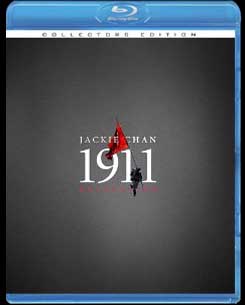
With his work in The Shinjuku Incident, Little Big Soldier (to at least some extent), and even his exemplary turn as Miyagi stand-in Mr. Han in The Karate Kid, Jackie Chan has been increasingly working in drama. He has, of course, done fine dramatic work in the past – his Heart of a Dragon is an excellent example of a surprisingly nuanced early Sing Lung performance – but one might assume that, in the face of his advancing age, Jackie feels an imperative to prove himself on the world stage as more than just the world’s preeminent chop-socky machine. Enter 1911.
1911 is Chan’s attempt to chronicle the Xinhai Revolution and the birth of “contemporary” China, which is – on many levels – hilarious.
In 1997, Hong Kong’s days as a British protectorate were over, and – in the mad dash to that finish line – the island’s artistically-inclined artists couldn’t pretend to a cautious optimism. Many directors worked their worries into their films (having worked their contempt for the Chinese Government into their pictures in times past), and a few more of them fled in fear of Chinese tanks rolling down Broadcast Drive. In the years since the handover, however – the very basic reality is that China has not done a great deal to change the face of Hong Kong. They’ve adopted an “ain’t broke/don’t fix it” mentality with regard to the profitability of the territory, and in fact – the capitalist mentality has actually permeated the mainland – and nowhere is this more apparent than in the film industry. Quite a few of the filmmakers who ran like hell have been coaxed back to the region with the promise of massive budgets and an untapped audience hungry for epic entertainments. Some, like John Woo, have been able to tell stories that don’t necessarily run afoul of state censorship – but others (Zhang Yimou comes immediately to mind) have actually crafted a number of films that allegorically speak to the power of today’s China. These films receive government cake that far exceeds the arts funding of other countries, and – like chasing down the Olympic Games or constructing the gleaming, futuristic spires Milla Jovovich scaled with her hypercolor crotch rocket – the goal of the expenditure is to celebrate the glory of the Motherland.
And so it goes with 1911– a well-acted (save, as always, for the wonky wooden white people), beautifully-mounted celebration of Chinese military rule.
BOARDWALK EMPIRE
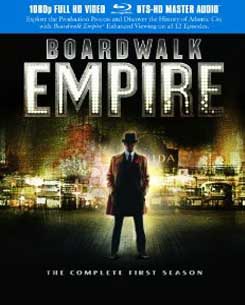
The obvious pedigree and an insane cast – and yet the vibe seems, to me, to be very lukewarm on this series. Still, it’s Scorsese, and it’s here.
FILM SOCIALISME
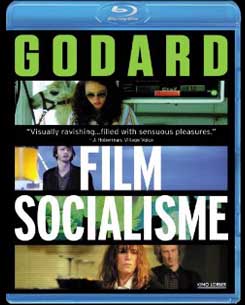
Jean-Luc Godard concocts a series of nearly Platonic dialogues about all that we hold dear. The film is structured in three “movements” with the second – an indictment/tribunal of parents by their children being the real standout
THE KILLER ELITE
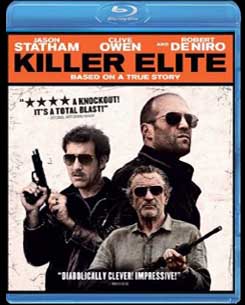
The film borrows its title from the old Bloody Sam film – and apparently it’s just as much of a mess. Clive Owen went right from this to Burger King. I think DeNiro did too, actually. Or maybe he showed up to the set of this with Burger King…I don’t know.
LOONEY TUNES SHOWCASE: VOLUME ONE
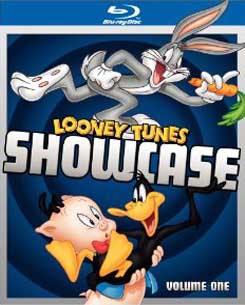
Who can deny the power of classic Looney Tunes shorts come to Blu Ray? Twenty-five of them are featured here, including classics like “Baseball Bugs,” “Hare Tonic,” “Lovelorn Leghorn,” “The Scarlet Pumpernickle,” “Speedy Gonzales,” and “What’s Opera Doc?“
MONEYBALL
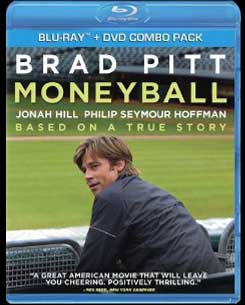
Q) When is a baseball movie not a baseball movie?
A) When it’s about sabermetrics.
Aaron Sorkin and the director of Capote have managed to combine two of my favorite things: sports and complex statistics. All they needed was a cameo from my Mom to insure I’d never watch this film. As it stands – I’ll check it out eventually.
ALL IN – THIS WEEK’S BLU!
1911: Collector’s Edition
Billy Elliot
Boardwalk Empire: The Complete First Season
Film Socialisme
Greece: Secrets of the Past
The Hellstrom Chronicle
Higher Ground
Killer Elite
Looney Tunes Showcase: Volume One
Moneyball
Nature: The Animal House
Primeval: Volume 3 – The Complete Series 4 & 5
Sinners and Saints
That ’70s Show: Season 1
There Be Dragons
What’s Your Number?
NOW THAT’S WHAT CHUD CALLS MUSIC – WITH JEB DELIA!
SNOW PATROL – FALLEN EMPIRES

Given that we all spend a certain amount of time as adolescents, you’d expect that “adolescent angst” would be as valid a topic for the creative impulse as “boy meets girl” or “hard times come again no more.” Problem is, the specifics of the anxieties of growing up white, middle class, and comfortable are not only not universal, but outside the target demographic, they’re not necessarily interesting. By the time we’re 16 or so, we’re all sure we’ve met (and probably lost) the love of our lives, and that we’ve endured the coldness and cruelty that the world has to offer; the fact that we had no fucking clue means that what can feel like emotional honesty to our younger selves can sound shallow and whiny to anyone who’s moved past that point.
Enter Snow Patrol, who manage to pull off the questionable trick of remaining in emotional adolescence the farther they move from it chronologically. Gary Lightbody and company make everything from house fires to air travel sound like the self-centered wail of the kid whose girl dumped him just before summer vacation, and while Michael Stipe evidently tried to help out these tired ponies with newfound inspiration, the slow-burn hooks of stuff like “This Isn’t Everything You Are” and “I’ll Never Let Go” sound like the same Coldplay-meets-U2 combo that you’d expect; and lines like “Oh you will never know how much I love you so” are the kind of thinking that makes these guys the kings of montages at the end of TV shows on the CW. That they’ve widened their musical horizons after six albums is encouraging (“Called Out in the Dark” is a sterling bit of electro-pop), but someday learning where melodrama leaves off and life begins will do wonders for this band: not even Bono would think of offering the observation ‘‘Ireland in the World Cup / Either North or South / This is all I ever wanted from life” with a straight face, much less with the pained sensitivity on display for most of this album.
THE LITTLE WILLIES – FOR THE GOOD TIMES
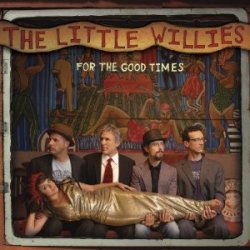
The secret here isn’t the startling flexibility of Norah Jones’ voice-for all the ease she brings to the material, from time to time her tongue seems to be wedged just a bit too far back in her cheek. Nor is it Richard Julian’s voice’s startling resemblance to Lyle Lovett’s. What holds the enterprise together is the firm musical guidance of guitarist/producer Jim Campilongo (whose recordings with the Ten Gallon Cats usually manage a bit more fizz and fun than we get here), who understands how easily Jones’ mannerisms could drown this material in cheese: the arrangements are a model of restraint, and his playing has the lock-down precision of a Luther Perkins, while the overall relaxed tone seems appropriate for a “band” that’s taken six years to come up with their second release.
Plenty of familiar country tunes are handled capably, but given the number of fine versions of these songs that already exist, and the amount of time the group has had to gather material, it would seem that you might have set aside the umpteenth version of “Lovesick Blues,” or the title song, in favor of digging out a few more lesser-known nuggets, like “Foul Owl on the Prowl” (written by Hollywood veterans—hacks?— Marilyn and Alan Bergman for In The Heat of the Night), which is transformed into a slinky blues highlighted by some tasty harmonizing by Jones and Julian, and Campilongo’s sly guitar solo. Campilongo also contributes the lone original, a pleasant instrumental. And Jones’ decision to amp up the tastefulness and tamp down the melodrama, while admirable in some contexts, means that her “Jolene” is actually less persuasive than Jack White’s, while her “Fist City” misses the nasty fun inherent in the material. Those in love with Jones’ voice can regard this as a don’t-miss. For anyone else, it’s a well-executed album of mostly classic country covers-a category that’s already pretty well stocked.
CHARLIE HADEN AND HANK JONES – SOME SUNDAY

“Final” albums are getting depressingly common, and when a legendary pianist like Hank Jones gets to the age of 91, still in command of the grace and understated power on display here, you’re torn between thinking that the man left owing us nothing, and wondering just how much more beauty he might have offered had he been spared just a bit longer.
This followup to 1995’s Steal Away reunites Jones with bassist Charlie Haden, and once more the selection is made up of what we think of as “spirituals” or “gospel music,” but ranging a bit more widely, and perhaps deeply, this time. Just for starters, they go back to a time predating the American gospel tradition with a pair of songs more commonly associated with Ye Olde English Christmas: “It Came Upon the Midnight Clear” and “God Rest Ye Merry, Gentlemen.” It’s a fascinating choice, as it seems to challenge the listener’s ability to hear these as simple holiday ditties: by placing these in the same context as “Take My Hand, Precious Lord” or “Nearer, My God, To Thee,” it suggests that faith is as real and important an element in understanding the music as rhythm or meter. The other unexpected juxtaposition is “Going Home,” Anton Dvorak’s version of an American hymn that he incorporated into his Ninth Symphony, “From the New World.” Jones and Haden share Dvorak’s belief in understanding America through understanding its folk traditions. Throughout, the playing of both men is reflective and ruminative, with the occasional hint of celebration in tracks like “Down By The Riverside”; even at its most intimate, though, the music is always shot through with a confidence and hope that suggest that Jones was ready to go, in a way that we should all hope to achieve at his time of life.
The recording, by the way, is just stunning, rich and deep, with the physical sounds of the plucked bass strings and slight squeak of piano pedals placing the listener right in the studio.
ALEX CHILTON – FREE AGAIN: THE 1970 SESSIONS

By 1969, there was a pretty clear demarcation between those post-Beatles bands that were going to survive, and those that weren’t: if you wanted to keep going, you wrote your own material, used your commercial clout to have some say in the choice of your producer, and embraced the free-form potential of FM radio. If, on the other hand, you were stuck in the “studio system” (typically because you wouldn’t, or couldn’t, write material that the marketing department found commercial enough), the changing times ensured that you were becoming less relevant with each passing day: not everyone was going to be The Doors, but Paul Revere and the Raiders weren’t exactly marking out an ideal career path, either. If you’re Box Tops lead singer Alex Chilton, you accept the fact that you can’t be the former, refuse to contemplate the latter, and set off on the path toward three decades of career suicide, but (one hopes) musical satisfaction. Two years later, Chilton would emerge fronting Big Star, a band as influential on future rock musicians as The Velvet Underground or New York Dolls. But in that space between Box Tops and Big Star came Chilton’s first attempt at a solo album, which sat unreleased for 25 years, only to go quickly out of print in the late 90’s. It re-emerges here with newly-added tracks.
Chilton’s solo work is always startling at first listen: you’re expecting the smooth soul of the Box Tops, or some hints of the pop assurance of Big Star (Chris Bell is certainly missed); what you get is rougher and more ragged, as a pop prodigy rummages his mental attic for the musical artifacts that shaped him, but which don’t necessarily define him. It’s hard to imagine anyone (much less Chilton himself) not getting the joke behind the exaggerated R&B vocal stylings of “All I Really Want Is Money” and “I Wish I Could Meet Elvis”, or the weird mashup of “Sugar Sugar” and James Brown’s “I Got the Feelin'”. What hurt the album’s prospects, both commercial and critical, though, is an insecurity that seems to compel Chilton to treat even a melody as strong as “The EMI Song (Smile for Me)” or “Every Day as We Grow Closer” as a template for a kind of ramshackle goofiness that only gets to be subversive if you have something to subvert in the first place. But most of the collection, for all its offhand weirdness (Chilton rarely even seems to employ the same voice on two consecutive songs), is filled with some great proto-Big Star moments, on tracks like “Come On Honey,” “I Can Dig It,” “It Isn’t Always That Easy,” “If You Would Marry Me Babe,” and “All We Ever Got From Them Was Pain.”
OTHER NOTABLE 1/10 RELEASES:
Ladysmith Black Mambazo – Ladysmith Black Mambazo & Friends Though there are plenty of ways to dip a toe into the wide-ranging ocean of African music, sometimes it helps to have an introduction from a familiar voice or two; thus this collection, bringing together three decades’ worth of (mostly excellent, occasionally misfired) collaborations between South Africa’s premier vocal ensemble and such imperialist aggressors as Paul Simon, Taj Mahal, and Dolly Parton.
Eddie Palmieri – La Fruta Bomba Classic Latin jazz that would make for one helluva mixed drink.
Elio Villafranca & Arturo Stable – Dos Y Mas A great week for Latin jazz continues, with amazing piano-percussion interplay.
Oscar Castro-Neves – Live at Blue Note Tokyo And, finally, one of Brazil’s great guitarists hooks up with the legendary Airto Moreira and vocalist Leila Pinhero in a sharp, superbly-recorded live set from 2009.
Richard and Linda Thompson, Shoot Out The Lights Deluxe Edition This has actually been spottily available for a few months, but I guess gets its formal release this week. The original album is one of the ten or so greatest ever recorded; as far as I can tell, it hasn’t been remastered from its most recent issue, but someone did have the sense to omit the forgettable “bonus” track “Living in Luxury” that a previous CD release had stuck in the center of the album in one of the great “sore thumb” moves of all time, so that’s a plus. The selling point here is that the second disk consists of the first commercial release of a full CD’s worth of performances from the tour that followed the album’s 1982 release, with the Thompsons embroiled in a savagely unpleasant divorce, with emotions ragged and spilling out onstage now and again. The sound is uneven, and it’s mildly disappointing that Shoot Out itself is only represented by three tracks (one of which is the title song, which already exists in multiple excellent live versions); the rest of the live material is certainly delicious, but less revelatory, with many of the same songs having been in previously released live sets. Essential for fans, nourishing for everyone else.
TONY’S PLAYIN’ GAMES – WITH TONY RYAN!
Another slow week of video game releases. A few things hitting digitally, with the sole retail release being My Pet Puppy 3D. A highly anticipated sequel to my My Attack Puppy 3D?
NFL BLITZ (360, PS3)

This actually hit last week, but I spaced it and it’s too good to just ignore. It’s just NFL Blitz in HD and that’s obviously a good thing. Besides Tecmo Bowl, NFL Blitz is the greatest thing about football. And it’s all here. You can’t murder-tackle your opponent after downs anymore, but that was hardly an essential part of the Blitz experience. It turns football into something simple and fast-paced. It’s an easy recommendation for anyone looking for good couch co-op or is nostalgic for that old-school Blitz feel.
AMY (PS3, 360)
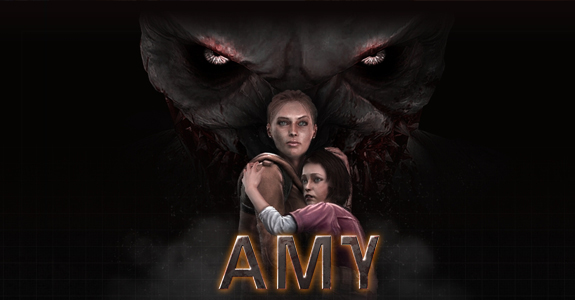
The big deal with Amy is the price. Amy costs 800 MS Space Dollars ($10.00 US) on 360 and $12.99 on PS3. The difference comes from Microsoft using its own currency system and Sony using real money. Microsoft has rigid tiers with the point system and the value of its XBLA games. All games are priced between 400-1600 MS points, within 200 point increments. It’s a weird little economy that Microsoft is controlling for obvious business reasons. They are preventing anyone else from driving the value of digital console games. Some evil, smart goings-on over there.
Sony, on the other hand, lets publishers set the price. In real money. $12.99 is actually $12.99 and I don’t have to do any space math. Gotta’ thank Sony for that.
But Amy’s developer is basing their pricing on The Euro. So, all that shit goes out the window. According to the developer (who I am going to put my full trust in on ALL economic issues) 800 MS points is 13 Euros. So somehow (using some more space math, I’m sure) that means PS3 owners have to pay more. I’m glad that this is finally out there, so people can talk about the issues with virtual currency, privacy, and smaller business. But what the fuck? The pricing makes no sense, and would just cause people who can buy both to purchase the game on the 360. It’s hurting Sony for being more creator friendly. I can understand why they feel the need to price the game that way – but it’s a terrible move that is punishing the wrong party.
And if you’re interested, I can tell you the actual game itself is about something vaguely scary, has a girl named Amy, and is likely made by Europeans. With the internet up in arms over space bucks, it’s hard to find actual information about the game.
EVERYTHING ELSE:
Choplifter HD. Yep. A downloadable game probably involving helicopters and possible enemy tanks. Or it’s a Sammo Hung lifting simulator. iOS turn-based strategy title Mecho Wars hits PSN. The rare PS-Mini game worth checking out, it’s a cool little Advance Wars clone with some striking art and a decent-enough system behind it all.
And that wraps it up. Next week sees a new look for the Special Ed. Stay tuned…
FIN.